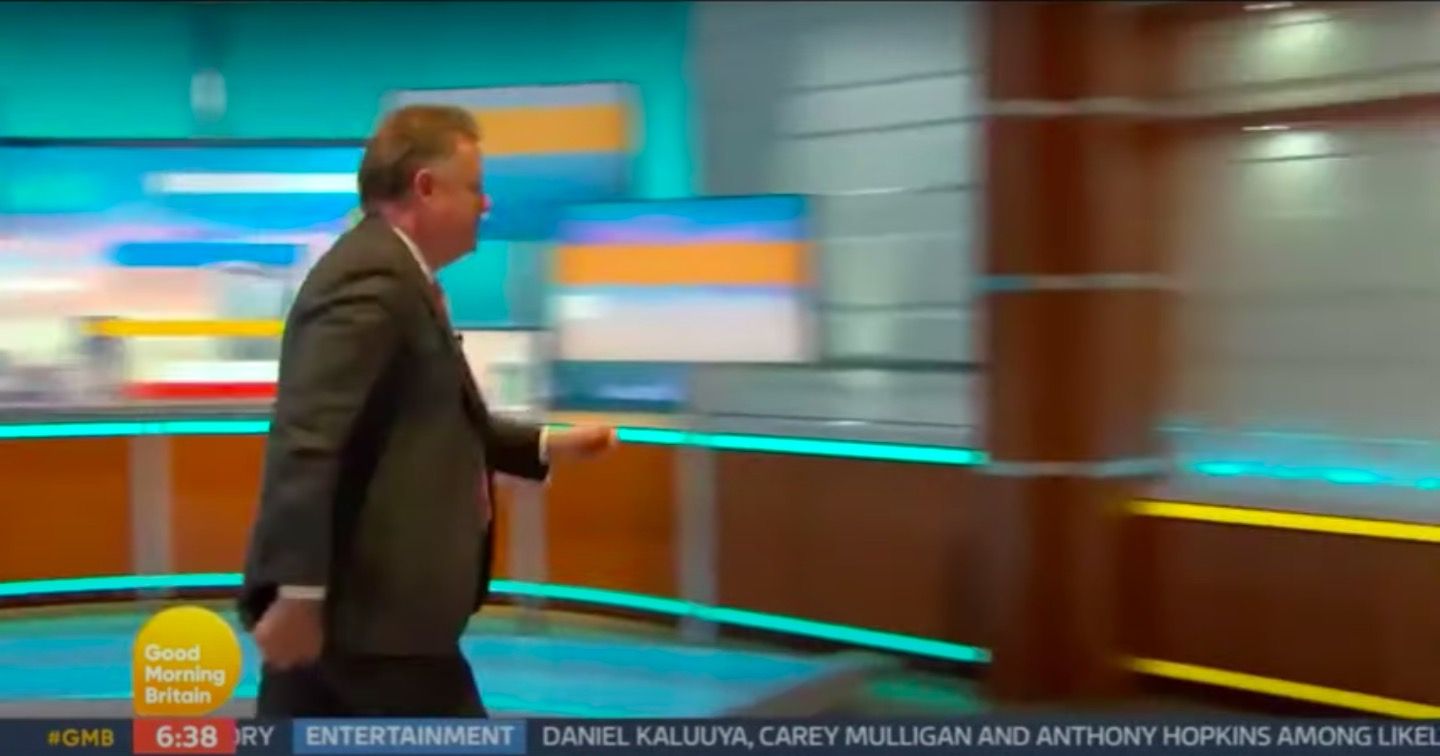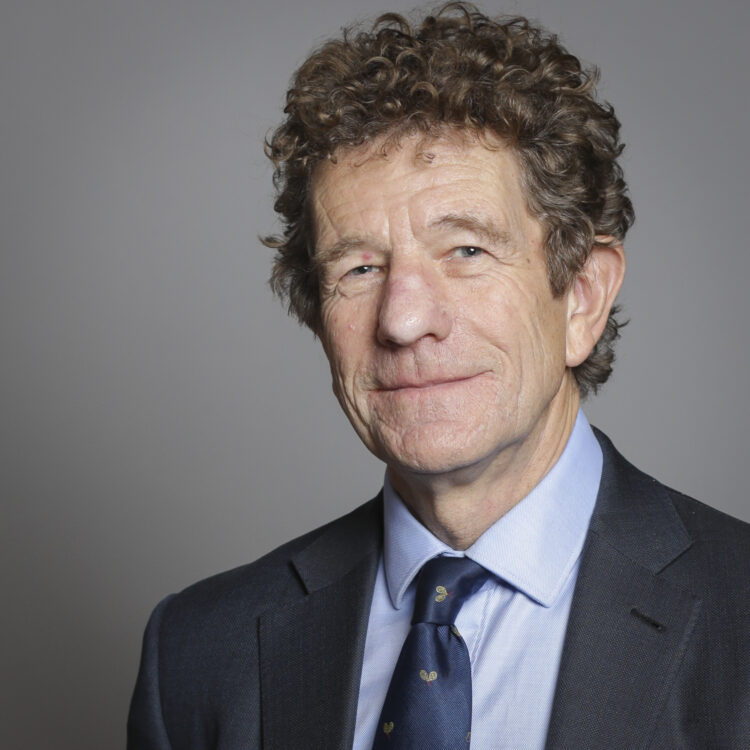By Gabriel Princewill-
The Independent Press Organization has been caught red handed breaching its own codes of conduct in what appears to be an attempt to block an investigation into manifest erroneous press reports early this year that Piers Morgan was cleared by Ofcom-the broadcasting regulator in response to multiple complaints from readers.
Its complaint Committee, headed by former justice minister, Lord Faulks,(pictured) brazenly refused to investigate a written complaint by this publication, asking it to hold six mainstream publications to account for repeating a falsehood that Piers Morgan was cleared by Ofcom in response to 55, 000 complaints from members of the public last September.
Faulks, an English barrister and former Conservative peer, brings added weight to Ipso’s press Complaint Committee, but the full force of his clout appears to have been found wanting when it came to effectively overseeing a competent investigation of this kind.
In its stated reasons to The Eye Of Media.Com , Ipso’s Committee claimed that we were not authorised members of Ofcom to bring forward a complaint, discreditably citing this as one of its reasons for refusing to assess the complaints, in breach of its very basic rule of open access to Ipso’s complaint system.
The very fundamental rule of the press regulator under who can complain, clearly states that ‘ anyone can complain about a significant inaccuracy which has been published on a general point of fact. Where an inaccuracy relates to a specific individual or organisation, IPSO may be able to take forward a complaint from a third party, but will need to consider the position of the party directly affected including…
Astonishingly, Ipso was already beset by an inherent contradiction in its handling of this complaint, given the fact that the press regulator had already received our complaint. The regulator asked more than once for links to the publications in question where the alleged erroneous information had been published.
This exposed the regulator subsequent excuse that it would need someone with first hand knowledge of Ofcom’s report, as an afterthought that shamelessly showed the regulator to have compromised the high standards it claims to have.
When challenged about the fundamental breach of its own code, the press regulator pointed to the latter part of the preliminary provision of its code that parties most closely involved must be taken into account.
This reference to Ofcom was virtually of no relevance, given the broadcasting regulator’s express statements to us that ”the British press misinterpreted our report”.
Embarrassing
Ofcom itself confirmed to us that Ipso had not contacted them at all as part of their investigation, a painfully embarrassing reality of their disinclination to establish the facts of this particular complaint.
Readers will be shocked to learn that a press regulator which the public is supposed to trust, can so flagrantly disregard its own code without shame and expect not to be found out.
Evidently when it comes to Piers Morgan pitted against the controversial and divisive figures of Harry and Meghan Markle, the tendency for partisanship is often high and inevitable for most*

Prince Harry and Meghan Markle caused a stir when they spoke to Oprah Winfrey IN March 2021
Image: ITV
That apart, and in the absence of any compelling evidence to suggest the presence of any allegiances, Piers Morgan is a powerful figure in the media many are shy to offend. His audacious style of open criticism can be a scary tool for some. He also has the mainstream media machinery generally on his side, making the extroverted presented a handful for any of his critics who are not up to the task.
Piers Morgan walks off Good Morning Britain over Meghan Markle row Image:ITV
Professional Standards
However, a press regulator whose editor’s code claims to ‘set the framework for the highest professional standards that members of the press subscribing to the Independent Press Standards Organisation have undertaken to maintain’, must surely hide their faces in shame when caught indulging in the practices contrary to those they claim to uphold.
More often than not, Ipso’s rulings are reasonable and competent, but in the absence of scanning every single one of their rulings, it is impossible to tell how many dishonourable rulings slip through the net. Most our team have seen in the past stand up to scrutiny.
However, this time Ipso has been embarrassingly caught out attempting to circumvent their own policies, an abysmal failing on its part to deliver the objective assessment it purports to do in relation to complaints.
On the complaint brought before Ipso, the supposed regulator of the Uk press with its complaint committee comprising professionals of rather formidable credentials, erred woefully in their collective dismissal of a complaint, the basis of which is easily demonstrable by way of fact and irrefutable evidence.
On Ofcom’s Report
The first aspect of Ipso’s statement to us read:
”We noted, however, that the report referred to had made clear that Ofcom had decided “that the programme did not breach the Ofcom Broadcasting Code”. We therefore found that it was not inaccurate to characterize this result as Mr Morgan having been “cleared”, or that Ofcom had “dropped” the complaint against him. We also noted that the articles, when quoting Mr Morgan, clearly attributed this wording to him. On this basis, we did not identify sufficient grounds to investigate a possible breach of Clause 1”.
‘In order to make a decision on whether the Code was breached, we would require the involvement of an individual with first-hand knowledge of the report and findings; you did not appear to be in a position to provide this information. In these circumstances, we considered that it would not be possible to investigate and publicly rule on your complaint without the input of Ofcom.
Because of this, we declined to consider your complaint further. For clarity, this does not affect the ability of Ofcom to make a complaint on this point’, they said.
Elaborating on their report, Ofcom said: ”You had also said that Ofcom had told you that it did not agree with the newspapers’ interpretation of the report. In this case, we decided that the alleged inaccuracy related directly to Ofcom.
‘In order to make a decision on whether the Code was breached, we would require the involvement of an individual with first-hand knowledge of the report and findings; you did not appear to be in a position to provide this information.
In these circumstances, we considered that it would not be possible to investigate and publicly rule on your complaint without the input of Ofcom. Because of this, we declined to consider your complaint further. For clarity, this does not affect the ability of Ofcom to make a complaint on this point’.
Waffle
How Ipso concluded that we were not in a position to provide an individual with first hand knowledge of the report is anybody’s guess. Ipso’s Complaint Committee simply showed themselves up in their statement of reasons.
The question of whether Ofcom’s report cleared Piers Morgan is factually a yes or no answer, but they waffled in vain, forgetting they were dealing with a publication that had dutifully done its homework.
Unlike them, who were at best about to inadvertently expose a level of ineptitude in their operation, or at worst, expose some biased motive for their shambolic response, we had our facts right from the horses mouth. The question of whether Ofcom cleared Piers Morgan is an objective one, not a subjective matter of interpretation or characterisation, as stated by Ipso.
With respect to Ipso’s comments that would expect a press regulator to know that a publication that attributes a false claim to the maker of the claim without exposing its fallacy is complicit in the false claim.
When we presented Ipso’s contention of Ofcom’s report to the broadcasting regulator last week, highlighting that they were contending that it was not wrong to characterise Ofcom’s ruling in clearing the programme of breaching its code , as amounting to Piers Morgan being cleared, an Ofcom’s spokesperson said: “Our report makes it clear that our decision relates to whether or not the programme was in breach of our broadcasting rules – not any individuals.” Well that says it all.
Poor Investigation
Ofcom confirmation that none of the members of Ipso’s highly decorated complaints committee contacted the broadcasting regulator to confirm the veracity of the complaint we made to press regulator unarguably show that either Ipso officials were scared of the truth, were evading it, or simply don’t know what a competent investigation entails.
More puzzling is Ipso’s claim under its function to ‘make sure that member newspapers and magazines follow the Editors’ Code’.
It also states that ‘We investigate complaints about printed and online material that may breach the Editors’ Code’.
Ipso also states that ”We can investigate serious standards failings and can fine publishers up to £1 million in cases where they are particular and systemic. In the 8 years since Ipso’s inauguration, it has never fined any publication a penny, talk less of £1m.
Ipso surely investigates many of its complaints. but the standard of the investigation in our case was sub-optimal. Not very high standards at all.
Perhaps the regulator succumbed to fear of upsetting higher forces, but a regulator should either do its job well or forget it altogether.
Ofcom’s 97,000-word report last September was erroneously summed up by the British press last September, but in the face of a dispute about it, the facts were easily ascertainable by engaging the intelligent representatives of Ofcom about the matter.
At the time, only this publication bothered to do so, everyone else merely scanned Ofcom’s copious report.
On the strength of our findings, Ipso’s Chief Executive Officer, Charlotte Dewar has some work to do in order to optimize what otherwise would appear to be a pool of talent within the domain of her leadership.
Presiding over the Uk press as a watchdog requires an unflinching level of principle without compromise or favour.
Regulatory bosses that lack any of the ideal attributes for such a post, can find themselves suffering from the phenomenon of ‘regulatory capture’ , which is when regulatory agencies may come to be dominated by the interests they regulate, rather than the public interest which they are appointed to serve.
Piers Morgan, a former Daily Mirror Editor, and presenter of Good Morning Britain walked off set and turned his back on his £6m a year job after he declined suggestions from ITV bosses to apologise for his rash statement on air that he did not believe a word of the Duchess Of Sussex, following her heartfelt complaints which evoked deep feelings of resentment on both sides of the spectrum between royalists and fans of Meghan Markle.
Morgan argued that he had every right to question the authenticity of the Duchess’s account, a stance generally supported by Ofcom’s detailed report.
The broadcasting regulator affirmed its position that offensive comments which were robustly argued were permissible under its code, and that the fact adequate counter arguments were provided by guests on the show, absolved the broadcasting programme from culpability in terms of breaching its code. Ipso might as well have been Piers Morgan’s puppet in making no cogent attempt to investigate a complaint which was evidently legitimate.
Mental Health And Suicide
Ofcom’s comprehensive and detailed report was clear in relation to ‘mental health and suicide, we considered the statements made by Mr Morgan during the above exchange had the potential to cause harm to viewers. The broadcasting regulator did note that Piers Morgan made clarifications towards his initial comments on suicide which appeared to be remorseful, which it said was ‘clear and helpful, but noted that it came the following day and” therefore had a lesser effect in mitigating the harm”
Ofcom’s report itself revealed on Page 5 that ITV acknowledged that it was important, “from an editorial perspective”, to include alternative, robust views within the Programme to “counterbalance” Mr Morgan’s views. The programme argues that it provided those robust views through the list of guests invited to the programme.
Protections
Ofcom stated that ‘We were concerned that, without adequate protections from the broadcaster, audience members may have been discouraged from seeking help about their mental health, particularly those experiencing suicidal thoughts, for a fear of being met with a similar reaction. Given the clear sensitivities surrounding the topic of suicide and mental health, in our view, these comments also had the potential to cause offence to viewers.
Our investigation confirmed that many members of the public erroneously perceived Piers Morgan to be the broadcaster, but Ofcom on the fourth page of its report distinguished the broadcaster from the presenter , when it stated that :”we also received 802 messages that expressed support for Mr Morgan and objected to his
“removal” from Good Morning Britain.
‘As these complaints relate to a contractual issue between a broadcaster and its presenter, they fall outside Ofcom’s regulatory remit’.
Ofcom stated from the outset of its report , under the section categorizing the case it was handling , that ITV was the service it was looking at, and the type of case with which it was concerned was ‘Broadcasting standards’. This put the remit of its professional duty into sharp perspective.
The regulator’s report was ultimately about adequate standards of protection provided by the broadcasting programme to mitigate or counterbalance any potential offence caused by Piers Morgan’s several comments.
The right to free speech afforded Piers Morgan the right to express his views, especially as ITV provided adequate protection to viewers by presenting guests of a different view to rigorously challenge some of his views.
But the idea that Ofcom cleared him would be an affront to the intelligence of any civil society, if anything because of his dismissive attitude to the Duchess Of Sussex claims of suicide.
Ofcom was unequivocal in its position that the presenter’s expressed cynicism of Meghan Markle’s claim of feeling suicidal was unacceptable and of concern, the rest of Morgan’s queries of her testimony were subjective and a value judgement open to debate.
Ipso shirked its duty to investigate our complaint, presenting inept arguments which had no hiding place in the face of bare facts.
Ofcom credited our publication for examining their report in detail, adding that ”I wish people had taken time to read the report in its entirety, and not jump to conclusions”. We wish the same too.
Piers Morgan has since claimed that he was cancelled and criticised those he accuses of stifling his right to free speech.
Morgan is himself on record admitting: “Just to be clear, I didn’t want to leave. It wasn’t my choice to leave. I was just told, ‘You’ve got to apologise or you have to leave.’ I said, ‘Why would I apologise for something I believe?’
So Piers Morgan left Good Morning Britain because he was too arrogant to admit he was in error by outrightly dismissing all of the Duchess’s claim , particularly her claims to have felt suicidal. Had he the humility to have apologised, he could have stayed on and had a field’s day and carefully scrutinized her many claims without much inhibition.
PIERS Morgan has now started a new TalkTV show on Monday, which apparently landed more viewers on average than all other news channels combined on Tuesday night. He is a crowd puller with plenty of character , but can do with that little bit of discretion.

